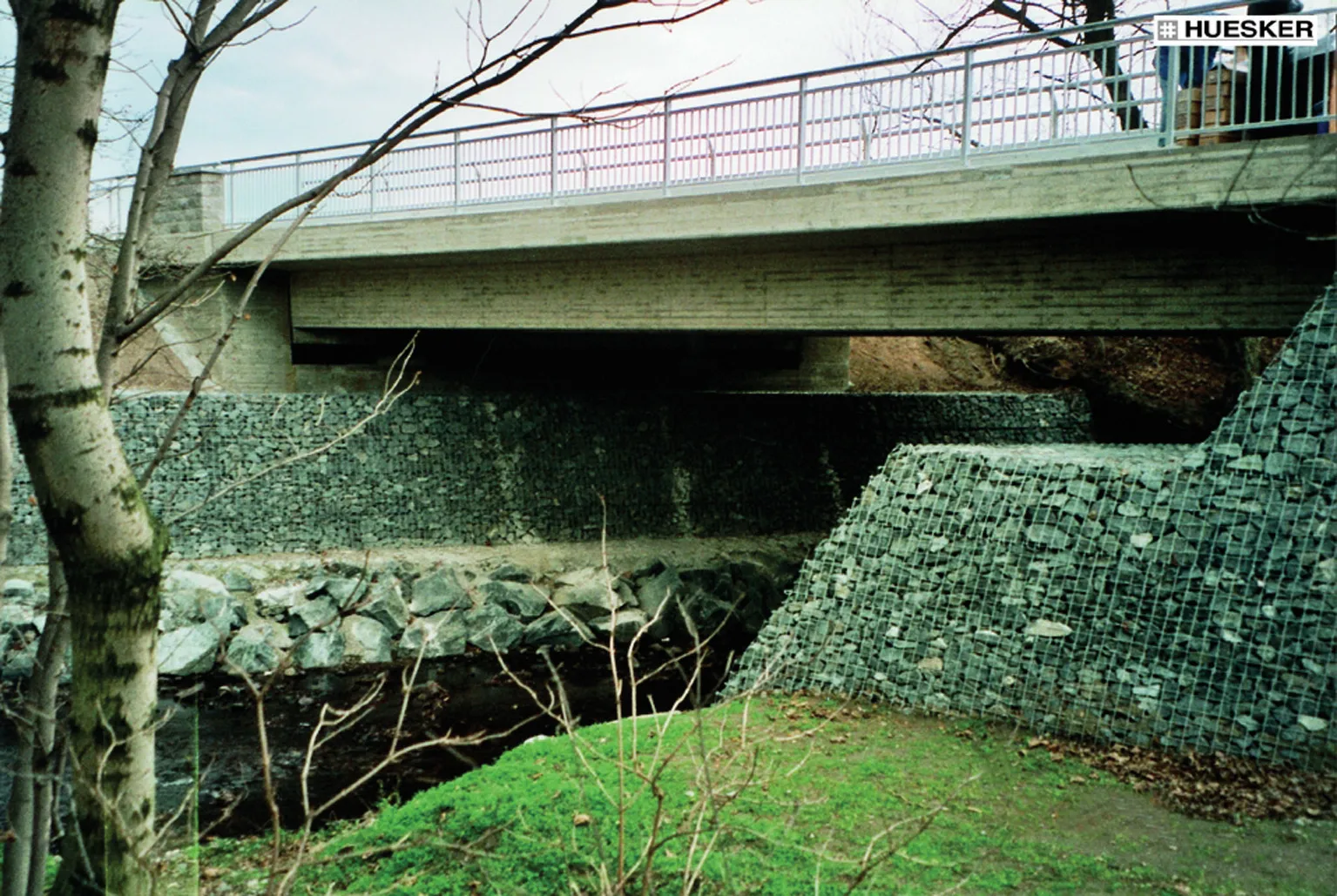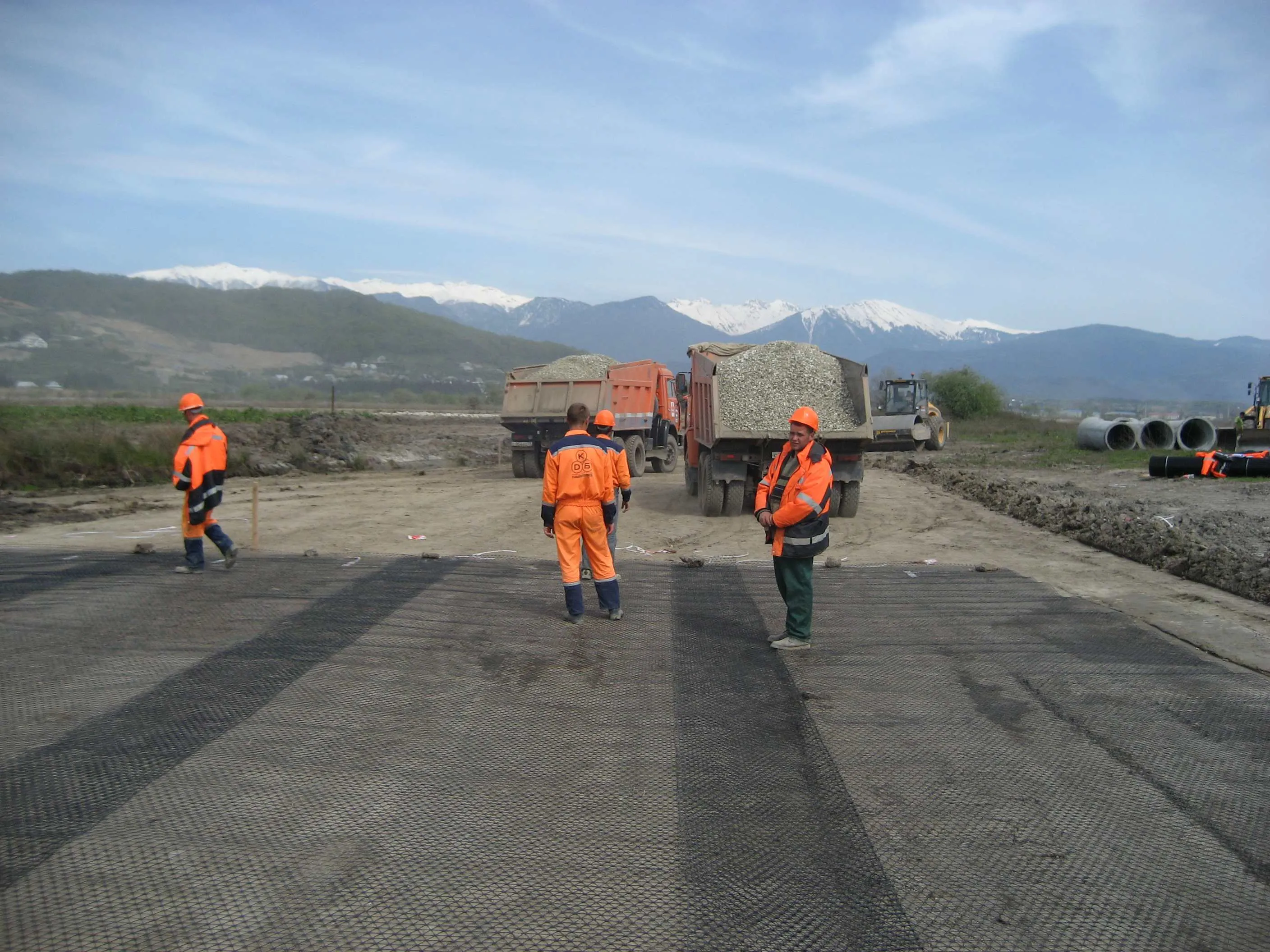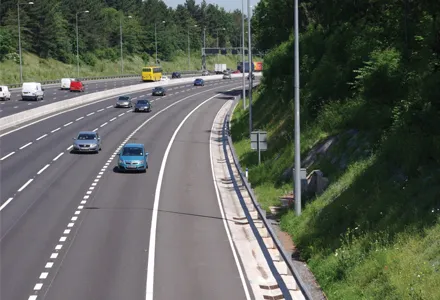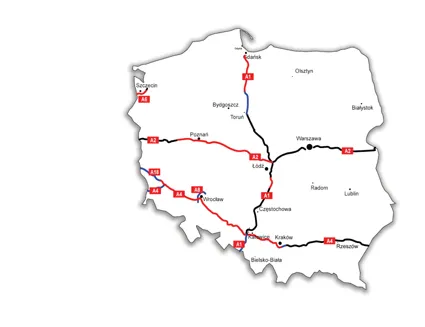A new raised dual carriageway to bypass the historic centre of the City of Wroclaw in south-east Poland will give access to the new Miejski Stadium in time for its role in the UEFA Euro 2012 football finals.
February 21, 2012
Read time: 2 mins
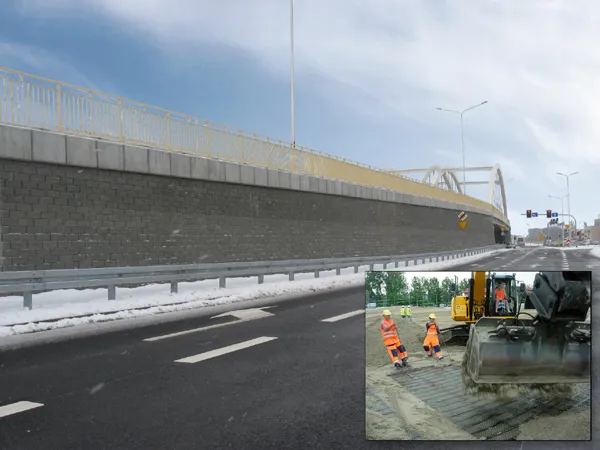
A new raised dual carriageway to bypass the historic centre of the City of Wroclaw in south-east Poland will give access to the new Miejski Stadium in time for its role in the UEFA Euro 2012 football finals.
Wroclaw Municipality and its main contractor,2296 Skanska, chose the 340 Tensar Tensartech TW1 structural and retaining walls solution for the 5km bypass project because of its low material costs and rapid construction, as well as its aesthetic appearance and versatility in adapting to site requirements.
Traffic conditions in Wroclaw are frequently very congested due to the narrow streets of the centre, and it can take two hours or more to transverse the city, located on a major connecting route across southern Poland.
Started in 2008, the new bypass route is elevated on embankments up to 11m high in order to cross the River Oder, the railway and local roads: this will carry through traffic and football fans away from the city centre.
A total of 19 separate Tensartech walls were built for the embankment, with ten incorporated into bridge abutments and flyovers, and construction will be completed in 2011.
Jacek Kawalec of Tensar International, who provided Tensar application advice, said: “Three different techniques were considered for the project. Two involved heavy concrete blocks or large cast concrete panels. Both would have been too costly and time-consuming to construct, and their appearance would have been unsympathetic to the historic architecture.
“The Tensartech TW1 system is fairly new in Poland, and uses split-face blocks produced locally to Tensar’s exacting standards. In total, the 19 walls of TW1 amounted to 2km in length, supplemented by around 300m of gabion walling, over 12,000m2 of wall in total, designed by Drotest.”
The ground over which the embankments were built comprises compacted sands and firm-plastic loams with few load-bearing problems. The locally-sourced mineral aggregate fill was layered with Tensar uniaxial geogrid to form mechanically stabilised soil layers within the embankments, fastened to the dry laid TW1 blocks by Tensar’s polymer key.
Wroclaw Municipality and its main contractor,
Traffic conditions in Wroclaw are frequently very congested due to the narrow streets of the centre, and it can take two hours or more to transverse the city, located on a major connecting route across southern Poland.
Started in 2008, the new bypass route is elevated on embankments up to 11m high in order to cross the River Oder, the railway and local roads: this will carry through traffic and football fans away from the city centre.
A total of 19 separate Tensartech walls were built for the embankment, with ten incorporated into bridge abutments and flyovers, and construction will be completed in 2011.
Jacek Kawalec of Tensar International, who provided Tensar application advice, said: “Three different techniques were considered for the project. Two involved heavy concrete blocks or large cast concrete panels. Both would have been too costly and time-consuming to construct, and their appearance would have been unsympathetic to the historic architecture.
“The Tensartech TW1 system is fairly new in Poland, and uses split-face blocks produced locally to Tensar’s exacting standards. In total, the 19 walls of TW1 amounted to 2km in length, supplemented by around 300m of gabion walling, over 12,000m2 of wall in total, designed by Drotest.”
The ground over which the embankments were built comprises compacted sands and firm-plastic loams with few load-bearing problems. The locally-sourced mineral aggregate fill was layered with Tensar uniaxial geogrid to form mechanically stabilised soil layers within the embankments, fastened to the dry laid TW1 blocks by Tensar’s polymer key.


